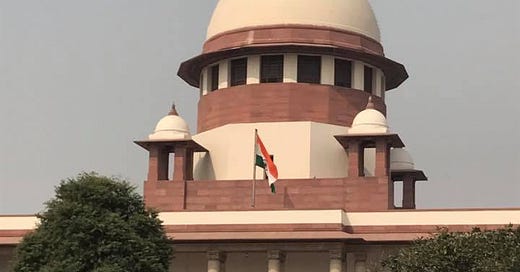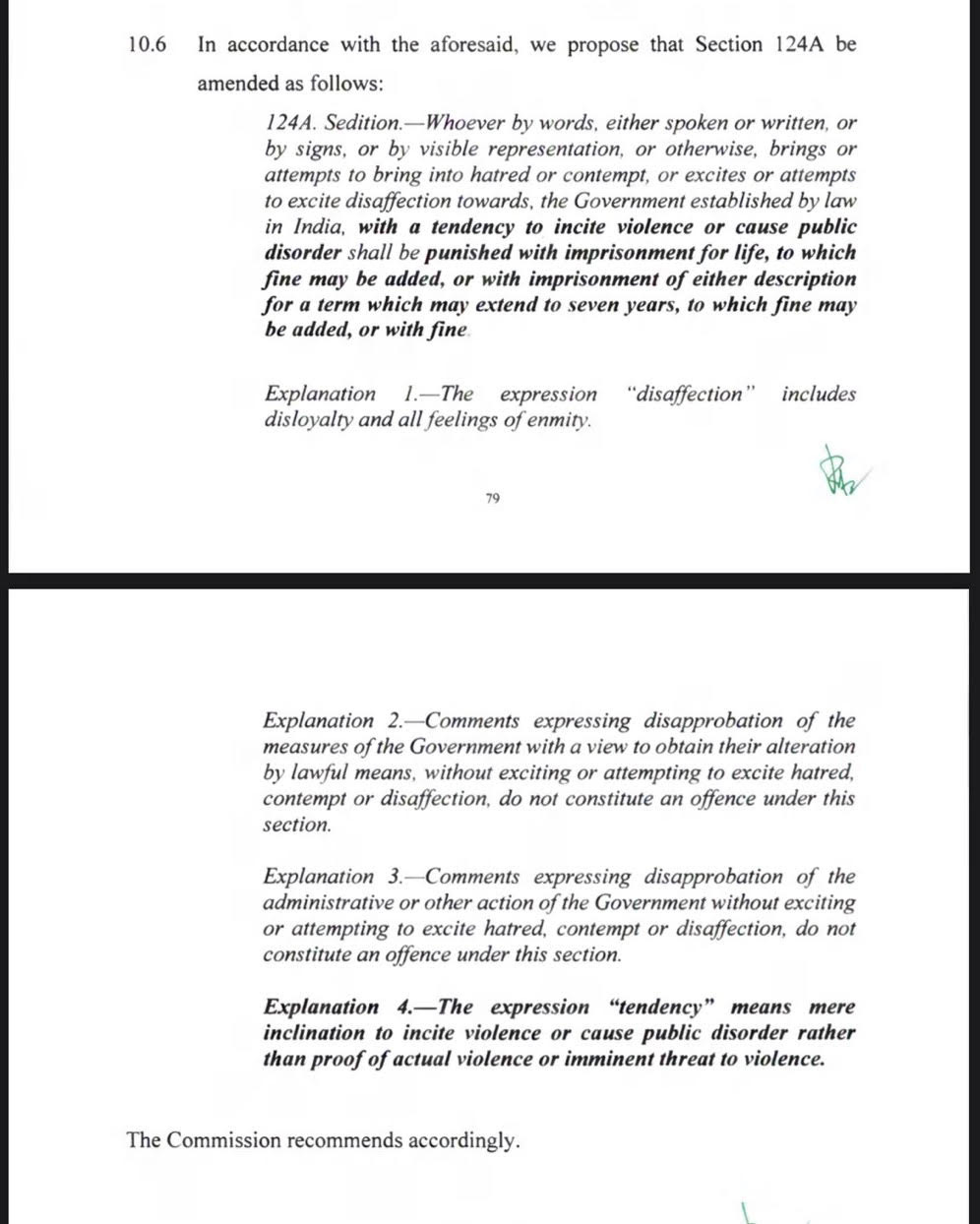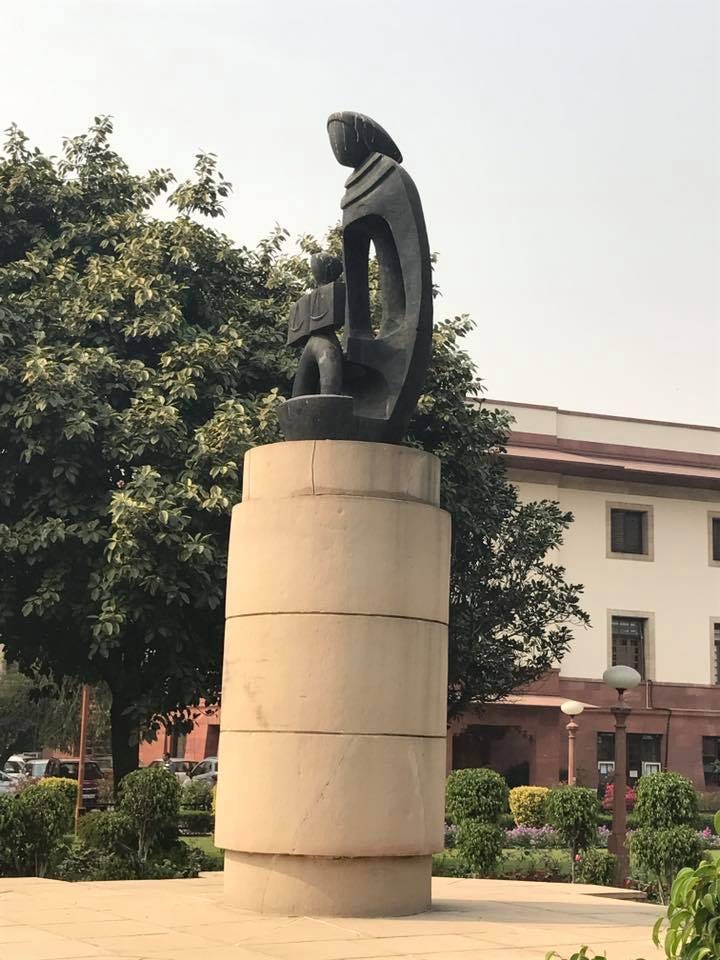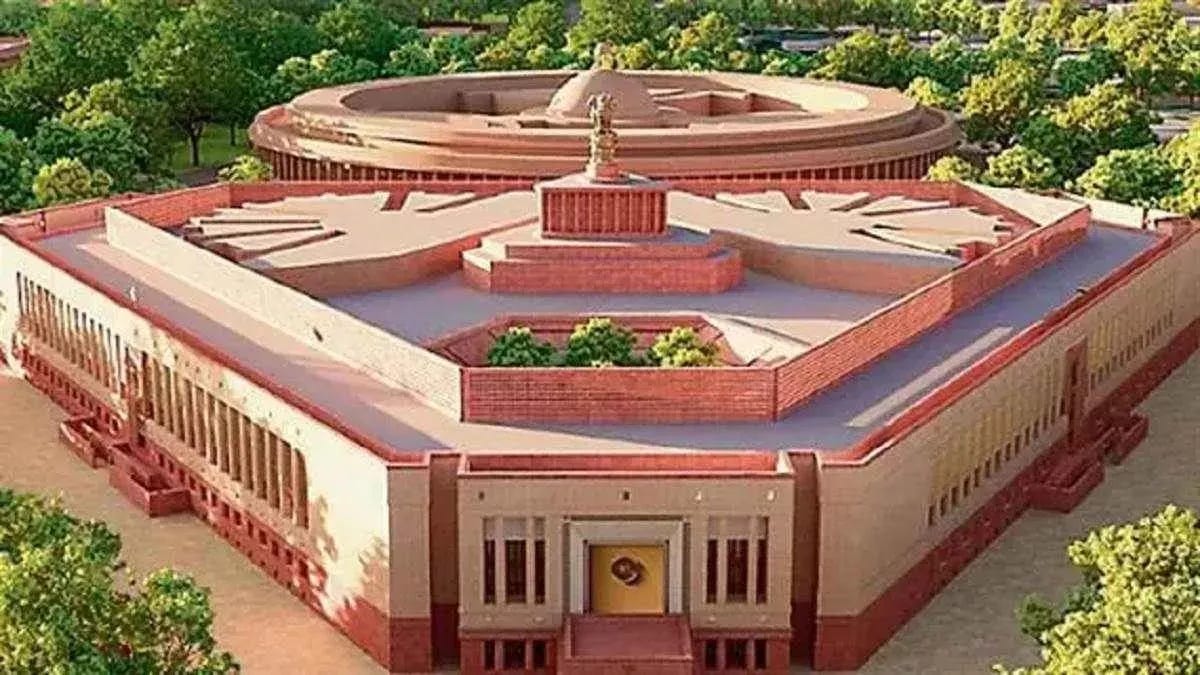Law of Sedition in India: Striking a Balance between Free Speech and National Security
Law Commission recommendations fail to strike a delicate balance: Revisiting the Law of Sedition in India and the Implications for Freedom of Speech in a Post-Colonial Democracy.
Introduction: In the annals of India's legal framework lies a contentious relic of the colonial era - Section 124-A of the Indian Penal Code (IPC), better known as the law of sedition. As the Nation grapples with the legacy of British Rule and the unfulfilled aspirations of the Indian Freedom Movement, the question of whether this archaic law should be retained in the statute book or abolished altogether has ignited an impassioned debate within the public domain. Now, while one was expecting the recommendations of the Law Commission of India to reflect a liberal approach, tilted in favour of free speech, there comes a big jolt— recommendations that, far from being in sync with the heart and soul of a vibrant multi-party democracy, operate to make the provisions of sedition even more stringent, if not draconian, stifling, if not throttling free speech.
The Origin and Intent: Enacted originally in 1870, and amended in the year 1898 during the colonial regime, Section 124-A of the IPC was primarily introduced to quell dissent and suppress the genuine aspirations of Indian freedom fighters, striving for sovereign self-rule and total independence. Rooted in an era of authoritarian governance, the law provided the British Ruler with a powerful tool to silence those who dared to challenge its authority. However, with the passage of time and India's emergence as a vibrant democracy, the relevance and necessity of this law have come under intense scrutiny.
A Clash with the Fundamental Rights: At the heart of the debate surrounding sedition lies a clash between two pillars of Indian democracy: the freedom of speech enshrined in Article 19 of the Constitution and the imperative to safeguard National Security and preserve social harmony. Critics argue that Section 124-A places an unreasonable restriction on the cherished right to express dissenting views and criticism of the Government, diluting the very essence of a democratic society. Proponents of the law, on the other hand, emphasize the need for safeguarding the unity and integrity of the Nation against acts that could potentially incite violence or encourage secessionism.
The Supreme Court's Intervention: Recognizing the significance of the issue, the Supreme Court of India recently intervened, effectively staying the implementation of Section 124-A IPC, pending the recommendations of the Law Commission of India. Hopes were high that this would pave the way for a progressive reassessment of the law, offering a glimmer of optimism to those advocating for an expansion of free speech rights. However, the latest recommendations from the Law Commission have dashed those hopes, suggesting a more stringent approach that risks further restricting the freedom of expression. The safeguards suggested are, at best innocuous, if not entirely cosmetic.
In summary, the Law Commission has recommended the retention of the sedition law, albeit with a few so-called safeguards, but has increased the punishment upto life imprisonment. A succinct background note and a summary of the the Commission’s recommendations may be perused by following the link below.
https://www.livelaw.in/top-stories/law-commission-sedition-section-124a-ipc-life-imprisonment-229895
A serious reader is, however, referred to the 88-page report of the Law Commision by clicking on the link below.
https://cdnbbsr.s3waas.gov.in/s3ca0daec69b5adc880fb464895726dbdf/uploads/2023/06/2023060150.pdf
For sake of brevity, we have culled out two screenshots of the Law Commission’s latest report and the same are reproduced below.
Our views on Law Commission Recommendations: The latest recommendations, in our humble opinion, operate to make the existing section 124-A IPC even more stringent and draconian.
The conduct of a mandatory preliminary enquiry is not a safeguard enough, nor is the proposed provision of the prior approval of the State Government or the Central Government. These formalities can be perfunctorily completed within matter of days, if not a few hours. While the overt act of sedition can and should be clearly and unambiguously defined, the word “tendency” to lead to violence— even when there’s no consequential violence— remains vague and problematic.
We now have the Unlawful Activities (Prevention Act), 1967, as amended up to date, with very stringent provisions regarding even bail. This being accompanied by section 121 IPC (waging war against the state) as well as section 122 IPC (preparing to wage war against the state), we feel that section 124-A IPC ought to have been altogether deleted. However, we perhaps still continue to nurture a latent slavish mentality in our minds – the legacy of the centuries of the colonial rule, and hence cling to the absolutely obsolete and outdated law of sedition.
We cannot, by any stretch of imagination, regard this to be a reasonable restriction on free speech, within the meaning of Article 19 of the Constitution of India. It is, to put it simply, patently unconstitutional. We think, now the theatre of action shall shift back to Supreme Court, which has also currently stayed the implementation of this section, for all intents and purposes. Not removing this draconian provisions from the statute book, by the Parliament or this provision being struck down by the Supreme Court of India shall be a valuable opportunity lost in #AmritKaal of our Independence.
Winding up: As India navigates its path towards an inclusive and democratic future, the fate of the law of sedition hangs in the balance. The ongoing debate encapsulates the complex struggle between the echoes of colonial rule and the aspirations of a young Nation striving for a more open and inclusive society. While concerns over National Security and Public Order are undoubtedly important, finding a delicate equilibrium that upholds the principles of free speech and preserves social harmony is crucial. The decision on whether to uphold or amend Section 124-A will profoundly shape India's commitment to democratic values and define the contours of its evolving legal landscape.
As the largest democratic republic in the world, and arguably the “mother of democracy”, the Central Government needs to take a bold decision to scrap the contentious section 124-A IPC, through an amendment in the IPC. On the other hand, if it chooses to oppose this before the Supreme Court, the outcome will be quite uncertain, given the latest recommendations of the Law Commission.
Looking ahead: This a moment in the history for the the top political executive to exhibit exemplary leadership and statesmanship. If it chooses to be guided by the inputs from the police and intelligence agencies, pen-pushing conservative bureaucrats and legal eagles, we, as a Nation, will have missed an invaluable opportunity to morph into a truly modern, liberal democracy, where free speech is cherished by its citizens and protected equally zealously by the State.
Whether this will happen, only time will tell.
____________________________________________________
KBS Sidhu. The Author is an IAS officer of 1984 Batch of Punjab cadre, and retired from service in July 2021, as Special Chief Secretary, Punjab, after 37 years of service.
The images have been either created by the author using Dream Studio #AI software, or are photos clicked by him.
He can be reached on kbs.sidhu@gmail.com or @kbssidhu1961 or https://www.facebook.com/kbs.sidhu









